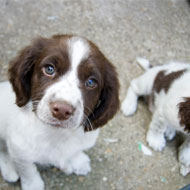
Call on government for public list of national dog breeders
The BSAVA, BVA, and the BVZS have put forward a collective response to Defra’s landmark consultation on animal establishment licensing in the UK.
The 12 week consultation, which ended on Saturday (11 March), is the biggest review the Government has ever undertaken on animal establishment licensing and takes into consideration an array of animal welfare issues.
Reacting to the consultation, the BSAVA, BVA and BVZS agree that much of the current animal licensing legislation is out of date and needs to be revised to take account of changes that have occurred since it was first introduced (Pet Animal Act 1951, Animal Boarding Establishments Act 1963).
They suggest that anyone breeding from a dog should be made to register with their local authority in line with the Data Protection Act 1998. This would mean that the local authority has a list of contact details for all dog breeders in their area, assisting enforcement bodies and ensuring that dog breeders were aware of the legal requirements.
The veterinary organisations added that, if possible, there should be a publicly available national list of dog breeders to provide intelligence for enforcers and allow public to check the list. If a threshold of three or more litters per year be met, this would then trigger a dog breeding licensing inspection.
“Animal welfare is always the top priority for vets, and we believe that starts right at the beginning of a pet’s life,” said BVA president Sean Wensley.
“If people are regularly breeding puppies then it is necessary and right that measures are in place to protect the health and welfare of the mother and her puppies. Anyone breeding from a dog should be required to register with their local authority and quote their registration number in any advert for puppy sales.
“This is not about targeting individual dog owners, but about best breeding practices and, moreover, the health and welfare of animals across the UK, which is why we are proposing that the licence and inspection criteria applies to the establishment rather than individuals.”
The organisations say the review ‘is an appropriate opportunity’ for Defra to consider whether any other activities or animal establishments should be licensed, including animal rescue, rehoming centres and falconry displays.
They acknowledge that while there is a need for change there is ‘no point in introducing new legislation if it is not properly enforced’.
To read the full response, visit: www.bva.co.uk



 The Veterinary Medicines Directorate (VMD) is inviting applications from veterinary students to attend a one-week extramural studies (EMS) placement in July 2026.
The Veterinary Medicines Directorate (VMD) is inviting applications from veterinary students to attend a one-week extramural studies (EMS) placement in July 2026.